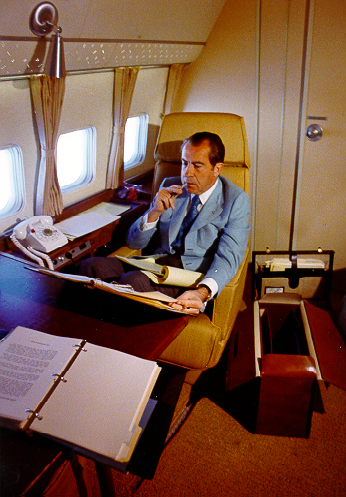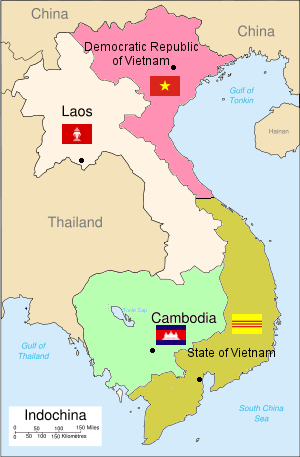|
List Of Premiers Of The People's Republic Of China
: ''All the names on this list follow the Eastern order convention (family name first, given name second) for consistency.'' In the People's Republic of China, the Premier is the head of government, and is elected by a delegation of the National People's Congress every five years. Premiers have been limited to two terms of five years since 1982. List of Premiers The Premiership of PRC was created since the establishment of the People's Republic of China on 1 October 1949. ; Generations of leadership: See also * Generations of Chinese leadership * Grand chancellor (China) * List of Chinese leaders * List of premiers of China * List of presidents of the People's Republic of China * List of vice premiers of the People's Republic of China * Paramount leader * Vice President of the People's Republic of China References {{Reflist People's Republic of China * Premiers Premier is a title for the head of government in central governments, state governments and ... [...More Info...] [...Related Items...] OR: [Wikipedia] [Google] [Baidu] |
Personal Name
A personal name, or full name, in onomastic terminology also known as prosoponym (from Ancient Greek πρόσωπον / ''prósōpon'' - person, and ὄνομα / ''onoma'' - name), is the set of names by which an individual person is known, and that can be recited as a word-group, with the understanding that, taken together, they all relate to that one individual. In many cultures, the term is synonymous with the ''birth name'' or ''legal name'' of the individual. In linguistic classification, personal names are studied within a specific onomastic discipline, called anthroponymy. In Western culture, nearly all individuals possess at least one ''given name'' (also known as a ''first name'', ''forename'', or ''Christian name''), together with a ''surname'' (also known as a ''last name'' or ''family name''). In the name "Abraham Lincoln", for example, ''Abraham'' is the first name and ''Lincoln'' is the surname. Surnames in the West generally indicate that the individual be ... [...More Info...] [...Related Items...] OR: [Wikipedia] [Google] [Baidu] |
1st National People's Congress
The 1st National People's Congress () was in session from 1954 to 1959. It held four sessions in this period. There were 1226 deputies to the Congress. These were the first legislative elections to take place after the founding of the People's Republic of China. Elections to the Congress In accordance with the rules set by the 1st Chinese People's Political Consultative Conference, the first set of deputies to the NPC were elected in the spring and summer of 1954, the first elections under the 1953 Electoral Law which set rules for elections in the PRC, by the following: * Provincial legislatures * Legislative councils of the directly administered cities * Regional legislature of Inner Mongolia First Plenary Session The first plenary session was held in September 1954. The Congress passed the 1954 Constitution of the People's Republic of China. It elected the state leaders: *Chairman of the People's Republic of China: Mao Zedong *Vice Chairman of the People's Republic of ... [...More Info...] [...Related Items...] OR: [Wikipedia] [Google] [Baidu] |
Cultural Revolution
The Cultural Revolution, formally known as the Great Proletarian Cultural Revolution, was a sociopolitical movement in the People's Republic of China (PRC) launched by Mao Zedong in 1966, and lasting until his death in 1976. Its stated goal was to preserve Chinese communism by purging remnants of capitalist and traditional elements from Chinese society. The Revolution marked the effective commanding return of Mao –who was still the Chairman of the Chinese Communist Party (CCP)– to the centre of power, after a period of self-abstention and ceding to less radical leadership in the aftermath of the Mao-led Great Leap Forward debacle and the Great Chinese Famine (1959–1961). The Revolution failed to achieve its main goals. Launching the movement in May 1966 with the help of the Cultural Revolution Group, Mao charged that bourgeois elements had infiltrated the government and society with the aim of restoring capitalism. Mao called on young people to "bombard the headqu ... [...More Info...] [...Related Items...] OR: [Wikipedia] [Google] [Baidu] |
Great Leap Forward
The Great Leap Forward (Second Five Year Plan) of the People's Republic of China (PRC) was an economic and social campaign led by the Chinese Communist Party (CCP) from 1958 to 1962. CCP Chairman Mao Zedong launched the campaign to reconstruct the country from an agrarian economy into a communist society through the formation of people's communes. Mao decreed that efforts to multiply grain yields and bring industry to the countryside should be increased. Local officials were fearful of Anti-Rightist Campaigns and they competed to fulfill or over-fulfill quotas which were based on Mao's exaggerated claims, collecting non-existent "surpluses" and leaving farmers to starve to death. Higher officials did not dare to report the economic disaster which was being caused by these policies, and national officials, blaming bad weather for the decline in food output, took little or no action. Millions of people died in China during the Great Leap, with estimates ranging from 15 to 55 ... [...More Info...] [...Related Items...] OR: [Wikipedia] [Google] [Baidu] |
1972 Nixon Visit To China
The 1972 visit by United States President Richard Nixon to the People's Republic of China (PRC) was an important strategic and diplomatic overture that marked the culmination of the Nixon administration's resumption of harmonious relations between the United States and Mainland China after years of diplomatic isolation. The seven-day official visit to three Chinese cities was the first time a U.S. president had visited the PRC; Nixon's arrival in Beijing ended 25 years of no communication or diplomatic ties between the two countries and was the key step in normalizing relations between the U.S. and the PRC. Nixon visited the PRC to gain more leverage over relations with the Soviet Union. The normalization of ties culminated in 1979, when the U.S. established full diplomatic relations with the PRC. When the Chinese Communist Party (CCP) gained power over mainland China in 1949 and the Kuomintang retreated to the island of Taiwan, a former colony of the Empire of Japan ruled from ... [...More Info...] [...Related Items...] OR: [Wikipedia] [Google] [Baidu] |
Asian-African Conference
The first large-scale Asian–African or Afro–Asian Conference ( id, Konferensi Asia–Afrika)—also known as the Bandung Conference—was a meeting of Asian and African states, most of which were newly independent, which took place on 18–24 April 1955 in Bandung, West Java, Indonesia. The twenty-nine countries that participated represented a total population of 1.5 billion people, 54% of the world's population. The conference was organized by Indonesia, Burma (Myanmar), India, Ceylon (Sri Lanka), and Pakistan and was coordinated by Ruslan Abdulgani, secretary general of the Ministry of Foreign Affairs of the Republic of Indonesia. The conference's stated aims were to promote Afro-Asian economic and cultural cooperation and to oppose colonialism or neocolonialism by any nation. The conference was an important step towards the eventual creation of the Non-Aligned Movement yet the two initiatives ran in parallel during the 1960s, even coming in confrontation with one another ... [...More Info...] [...Related Items...] OR: [Wikipedia] [Google] [Baidu] |
Geneva Conference (1954)
The Geneva Conference, intended to settle outstanding issues resulting from the Korean War and the First Indochina War, was a conference involving several nations that took place in Geneva, Switzerland, from 26 April to 20 July 1954. The part of the conference on the Korean question ended without adopting any declarations or proposals, so is generally considered less relevant. The Geneva Accords that dealt with the dismantling of French Indochina proved to have long-lasting repercussions, however. The crumbling of the French colonial empire in Southeast Asia led to the formation of the states of the Democratic Republic of Vietnam (North Vietnam), the State of Vietnam (the future Republic of Vietnam, South Vietnam), the Kingdom of Cambodia and the Kingdom of Laos. Diplomats from South Korea, North Korea, the People's Republic of China (PRC), the Union of Soviet Socialist Republics (USSR) and the United States of America (US) dealt with the Korean side of the Conference. For the ... [...More Info...] [...Related Items...] OR: [Wikipedia] [Google] [Baidu] |
4th National People's Congress
The 4th National People's Congress () was in session from 1975 to 1978. It held only one session, in January 1975. There were 2864 deputies to this Congress. The Congress passed the 1975 Constitution of the People's Republic of China. Elected state leaders *President and Vice President: ''Posts abolished'' *Chairman of the Standing Committee of the National People's Congress: Zhu De *Premier of the State Council: Zhou Enlai *President of the Supreme People's Court: Jiang Hua Highlights The posts of President of China and Vice President were abolished in 1975, according to the suggestion of Chairman Mao Zedong. This was part of the Chinese Cultural Revolution The Cultural Revolution, formally known as the Great Proletarian Cultural Revolution, was a sociopolitical movement in the People's Republic of China (PRC) launched by Mao Zedong in 1966, and lasting until his death in 1976. Its stated goal ..., which ended in 1976. External links Official website of the NPC {{Pe ... [...More Info...] [...Related Items...] OR: [Wikipedia] [Google] [Baidu] |
3rd National People's Congress
The 3rd National People's Congress () was in session from 1964 to 1975. It held only one session in the ten years. The session was held from December 21, 1964, till January 4, 1965. The Congress elected the state leaders: *President of the People's Republic of China: Liu Shaoqi *Vice President of the People's Republic of China: Soong Ching-ling and Dong Biwu *Chairman of the Standing Committee of the National People's Congress: Zhu De *Premier of the State Council: Zhou Enlai *President of the Supreme People's Court: Yang Xiufeng *Procurator-General of the Supreme People's Procuratorate: Zhang Dingcheng Zhang Dingcheng (; December 1898 – December 16, 1981) was a politician of the People's Republic of China, Procurator–General of the Supreme People's Procuratorate from 1954 to 1975. External links [...More Info...] [...Related Items...] OR: [Wikipedia] [Google] [Baidu] |
Liu Shaoqi
Liu Shaoqi ( ; 24 November 189812 November 1969) was a Chinese revolutionary, politician, and theorist. He was Chairman of the NPC Standing Committee from 1954 to 1959, First Vice Chairman of the Chinese Communist Party from 1956 to 1966 and Chairman of the People's Republic of China, the ''de jure'' head of state, from 1959 to 1968, during which he implemented policies of economic reconstruction in China. For 15 years, Liu held high positions in Chinese leadership, behind only Chairman Mao Zedong and Premier Zhou Enlai. Originally considered as a successor to Mao, Liu antagonized him in the early 1960s before the Cultural Revolution. From 1966 onward, Liu was criticized and then purged by Mao. In 1968, Liu disappeared from public life and was labelled the "commander of China's bourgeoisie headquarters", China's foremost " capitalist-roader", and a traitor to the revolution. He was purged and imprisoned during the Cultural Revolution, but was posthumously rehabilitated by Den ... [...More Info...] [...Related Items...] OR: [Wikipedia] [Google] [Baidu] |


.jpg)




